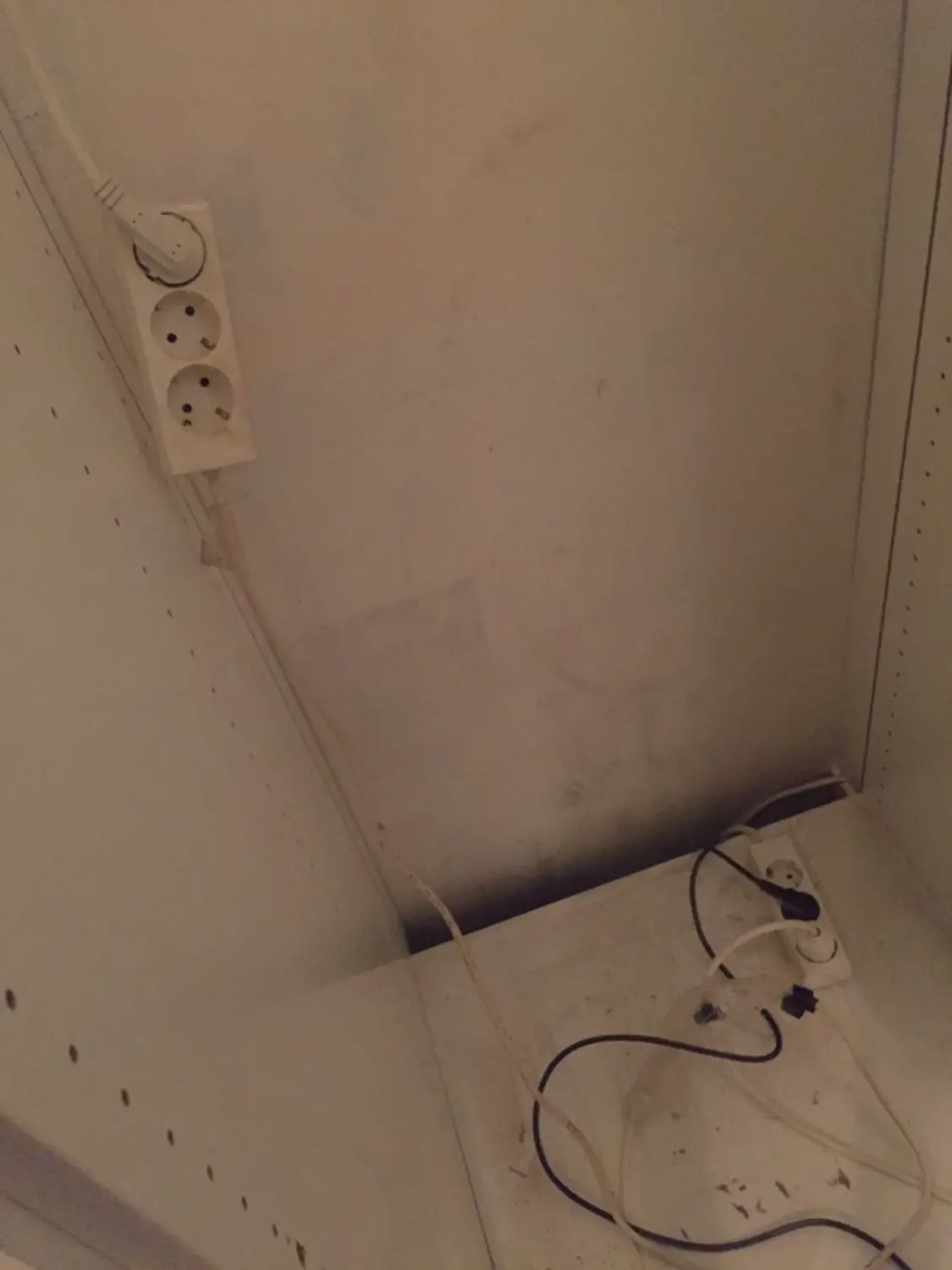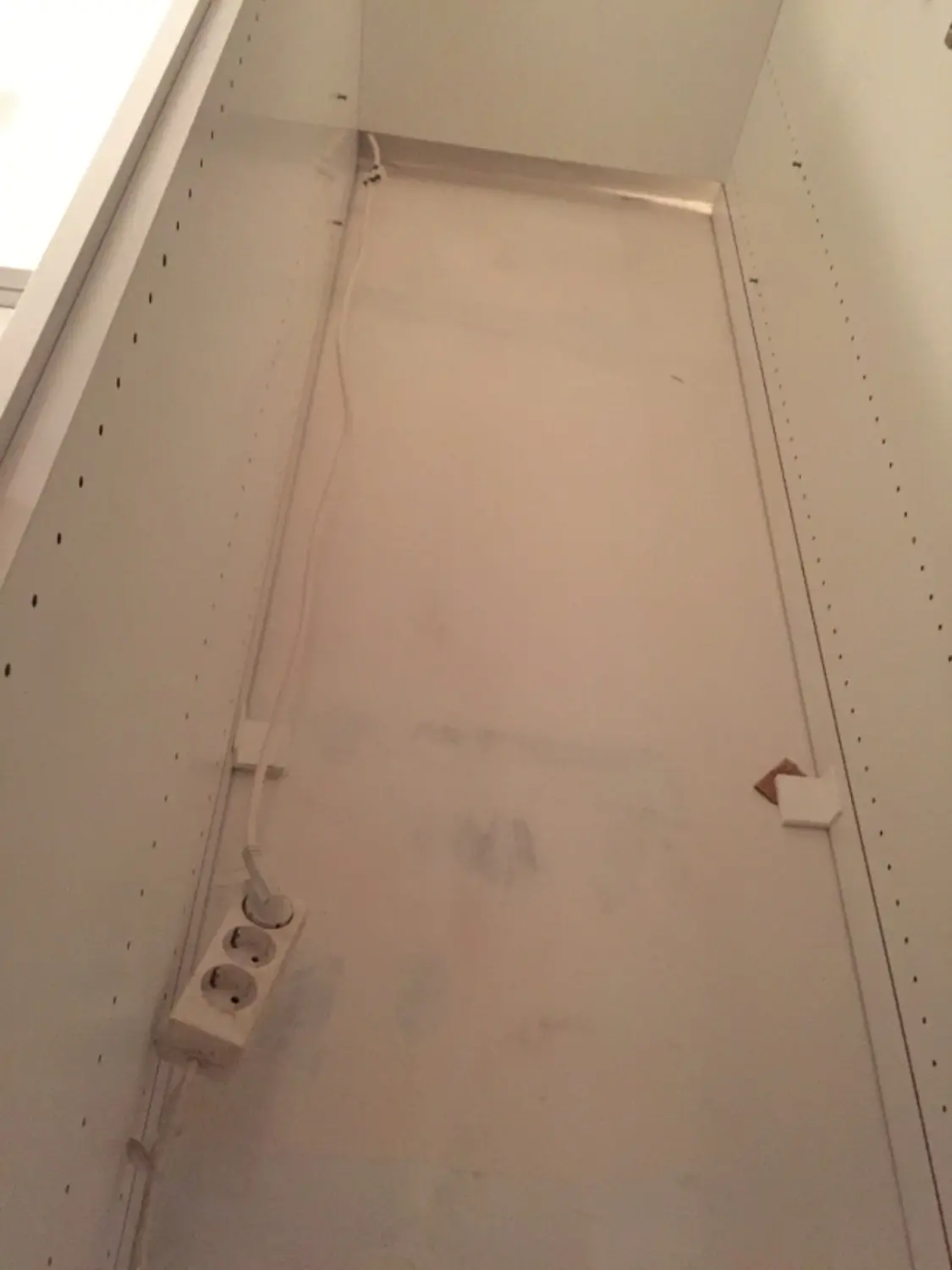I helped with the remodeling of a house once. Part of it involved moving the gas stove, and some electric sockets.
When the gas guy came, he looked at the installation, nodded, “old style, huh”. Took out a saw, and went on for the gas pipe. I was like “WTF man! Don’t we turn the gas OFF first!? 😯”. Turns out, there was no way to “turn the gas off”… for a single apartment; it was either the whole apartment building, wait for it to purge, leaving everyone without gas in the meantime… or saw the metal tube as gas was leaking out of it. I just kept waiting for a spark to ignite the whole kitchen… but seems like the guy knew what he was doing, and the house didn’t explode that day.
Meanwhile, we were discussing whom to call for the sockets. Gas guy overheard us, and went “just rip the cable off the plaster”. We went like “WTF do you mean rip the cable off the plaster!? 😯”. All helpful, he showed us: gave the cable from the socket a tug, and indeed some paint and plaster fell off, exposing the wires.
Turns out, he used to be on the building crew of those apartments, the whole house was wired by placing wires on the wall, then holding them in place with some plaster and painting over it… and no ground wires in sight 🤦
deleted by creator
Jesus Christ. “This safety feature is so goddamn inconvenient!”
deleted by creator
This is the most horrifying diy job I’ve ever heard of
Not really.
While, obviously there’s a chance that the power washer draws too much energy and could start a fire, the most likely scenario is that it draws too much starting power for a “quick” fuse and the fuse trips when you start it but sustained load is fine.
A simple replacement of the fuse in question would have alleviated the problem.
Forcing it to stay on is all kinds of wrong, but the power washer is unlikely to burn the house down.
Any other electrical fault on the other hand, could easily do it.
Electricity is the one place where Dunning-Kruger hits hard, the other is plumbing.
My sister and BIL bought an apartment some years back. The first thing I see when I enter the kitchen is code violation.
There’s a plug in a socket in the middle of the wall with a wire going behind the kitchen cabinets.
We took the fridge out and found it went into an extension cord and then there was a plug going to a … fuck it … here’s the picture:

But wait! It gets worse:

(Look at the top)
My BIL decided to go full Dunning-Kruger and did nothing with the death trap until an electrical inspection six years later.
IIRC holding breakers doesn’t even prevent them from tripping, they still trip internally if the switch can’t move.
If you physically hold the breaker switch, sure. If you just short them with copper wire not so much.
Parent said the breakers were 'forced open with copper wire", which sounds like wire was wrapped around the switch to hold it in position. If you’re bridging the terminals with wire, sure. That takes the breaker out of the circuit entirely.
deleted by creator
My cardiologist said about the same thing about my EKGs.
Huh. Hmmmm… Interesting! Very interesting.
Well, seeing as you’re not dead, this must be a valid configuration, probably an uncommon variant. But maybe come back in 10 years.
I’ll probably see a different doctor too.
Now I want to know what the configuration is
I have no medical training whatsoever so please take with a grain of salt, however, it was explained to me that electrically speaking my heart is greatly rotated despite its physical orientation. The conduction pathways for the electrical activity are off-axis.
It’s always going to look abnormal on some machine that is frequently used to evaluate results. I was told to ignore these.
I was put on a monitor for a month and a few events were observed where the primary pacemaker failed to generate a beat, causing the slower secondary pacemaker to take over as a natural biological failsafe, but I’m told this is a fairly common occurrence and most people don’t notice these events.
I could be totally off base but that was as much as I was capable of understanding.
(no medical training here either, just what I’ve learned and researched thanks to surviving two heart attacks)
That would sound like a weird configuration, but “technically good enough” as long as the chambers contract in the right order relative to each other. I’m guessing you could develop conduction problems with age, which could have a problem repairing “the normal way”, and the “smart” EKGs that automatically spit out an analysis, will always show a warning when they don’t see the normal order of electrical activity.
If you are at risk of hearth problems, I strongly suggest getting familiar with he early warning symptoms. We don’t normally feel the heart itself, it has no nerve terminations intended for that, so the warning signs feel like maybe a stomach ache, or pain in your arm, or neck, or some burning, or similar. “Heart adjacent”, not directly where you’d think the heart is, and it changes from person to person.
I wish you never have any problem, but if you do, don’t try to “wait it out”; once you know something weird can happen, get at least a blood pressure meter and an oxymeter (even cheap non-certified ones are better than nothing), and learn what your “normal” vitals look like. Then stay moderately vigilant for any changes, rush to the ER when they go out of “normal”.
I appreciate the advice! That’s very kind of you. I’ll take that into consideration.
I do have reentrant issues sometimes where it can race for no reason, and that probably places me at higher risk of events; which is why I was at the cardiologist in the first place. It will abruptly double or triple because one discharge cycles back sometimes and causes the next and it will suddenly be at 180-200 BPM from rest. At the same time, nobody lives forever. I’ll take reasonable steps and enjoy that I get to live today.
It’s a little funny but the last opinion was I ought to be alright for a good while.
Heart is connected directly to the butt.
It’s quite uncommon, but does a good job and is decently effective.
I have a plumber look at something once and he said, “ that’s interesting. Never seen it done that way before.
When I lived in a dorm in college we had a problem with our radiator making squeaking noises. Dorm built in the 60s for reference.
Maintenance showed up and he verbatim said “I’ve been working here for 30 years and have never had this problem. You might be better off moving rooms.” He managed to fix it by doing basically the radiator-equivalent of turning it off and on again. Never happened again.
Yep, I’ve got that problem with my wood stove. There’s water running though there to move the heat to central heating and when the volume stream is just right something will get into resonance and then you can turn the pump up and down as much as you want, the whole thing will whistle like a steam locomotive until you turn the pump entirely off and wait five seconds. Happens maybe once a year.
I looked at a house that in addition to still having some knob and tube wiring had an abomination of exposed wires going haphazardly to a plug, and that plug into a surge protector/power strip. Im not sure where the other end of this thing terminated but suffice to say I was not impressed enough by their craftsmanship to put an offer down.
I once had a plumber here, who arrived with a “Morning!” in already not the greatest mood.
He was supposed to do two routine jobs: Swap a faucet and re-connect a drain pipe on another basin.
Well, he couldn’t unscrew the faucet. First, he couldn’t reach the screw, so had to disassemble the drain pipe of that basin. Then the screw was going around in circles. So, he had saw the whole faucet off.
Having installed the new faucet and reassembled the drain pipe, he thought that was the end of this odyssey and he’d just quickly re-attach the drain pipe on the other basin.
…nope. That drain pipe did not reach to where it was supposed to go and it was so old and badly installed that he couldn’t extend it either. So, he had to replace the whole drain pipe, from inside the wall to both the main basin drain and the side drain.
A lot of swearing occurred that day. But hey, at least he was visibly happy when he could finally leave. 🙃
I work in IT. My favorite thing to call tricky problems is “interesting.” It always gives the reasonably frustrated client a reason to chuckle. “Very cool,” or “Is -that- so” or “ah, good, a different error! Progress…” Are other ones to sprinkle in where they fit. Being upbeat while sharing their frustration to an empathetic degree buys you a lot more time to troubleshoot than if you sat on mute for 30min googling things and clicking on their remote window once every 5min to get the same error. And conveying that a problem is very complex is also important, when to them, going from not printing to printing seems like it should be an easy fix because “it worked this morning.”








